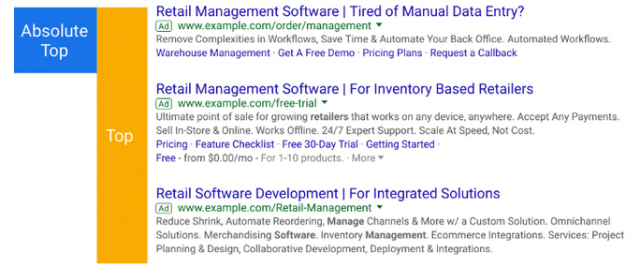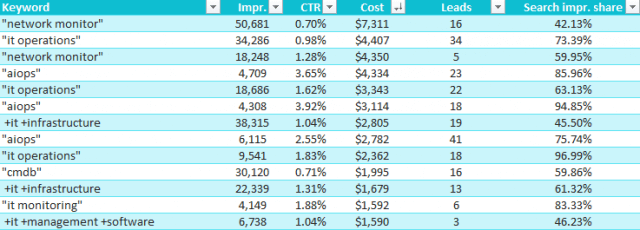If I am going to admonish Google for its many, many failings when it comes to looking out for advertisers, I should commend Google when it does something in the best interest of advertisers. In late February, Google announced the impending sunset of average position. Unlike other instances where Google has taken away data (most remarkably when Google removed keyword data for organic traffic), Google is actually doing advertisers a favor by removing ad position.
For the breakdown of what this means in the reporting interface, Wordstream and Seer do a good job explaining the difference between Absolute Top and Top Impression Share. It’s super easy. The image below pretty much explains it. I want to spend a little time diving into why this change should improve advertiser performance.

Average position is a crutch. It’s a super easy metric to look at moving up or down to get more clicks (improve position) or spend less per click (drop position). It doesn’t give a sense of weighted value. Is an average position of 2.5 50% better than an average position of 3.7? Nobody knows. Average position gives a sense of direction but doesn’t really give an advertiser a sense of how much to move in that direction.
Impression share is a much better metric. It gives you a sense of opportunity size. If you are receiving 30% impression share, you can tangibly understand there is 70% of impressions you are missing out on. Diving deeper, you can find you can gain 35% Impression Share by increasing your budget. That is useful data. When you have an average reported position of 2.5, it’s much harder to discern what a 1.5 position improvement gets you.
What Google is doing, and what we should be thanking Google for doing, is forcing us to use impression share data rather than average position data. Impression (top) and impression (absolute top) are pretty nonsense vanity data points, but forcing advertisers to think about the percentage of impressions they are getting in spot on.
Impression share is so much more valuable than average position. Impression Share is a valuable forecasting tool. Advertisers can project the impact of increasing budgets and raising bids for top performing keywords using reported impression share and search volume from Keyword Planner.
To illustrate the value of impression share over average position, please let me walk you through a quick example. Let’s look at impression share data from Google Ads for the last month of a set of keywords.

You can estimate max total impressions by dividing existing impressions by the total search impression share. You can then use existing clickthrough rate (CTR) to estimate a max total clicks and conversion rate (CVR) to estimate max total leads.

We then need to get cost data To identify max cost per click, max cost, and max cost per lead, we unfortunately have to rely on Keyword Planner to provide a projected max cost per click for any keyword. This can be wildly inaccurate but is the best tool we have found for this data (please let me know if you have a better solution). We can then combine all of this data together to get us a good look at opportunity for increasing impression share for our keywords.

The impression share analysis in this example would expect 40+ more conversions at a cost of just over $6,000 by increasing impression share. That is useful, tangible information. Let’s see anyone get that out of average position.
